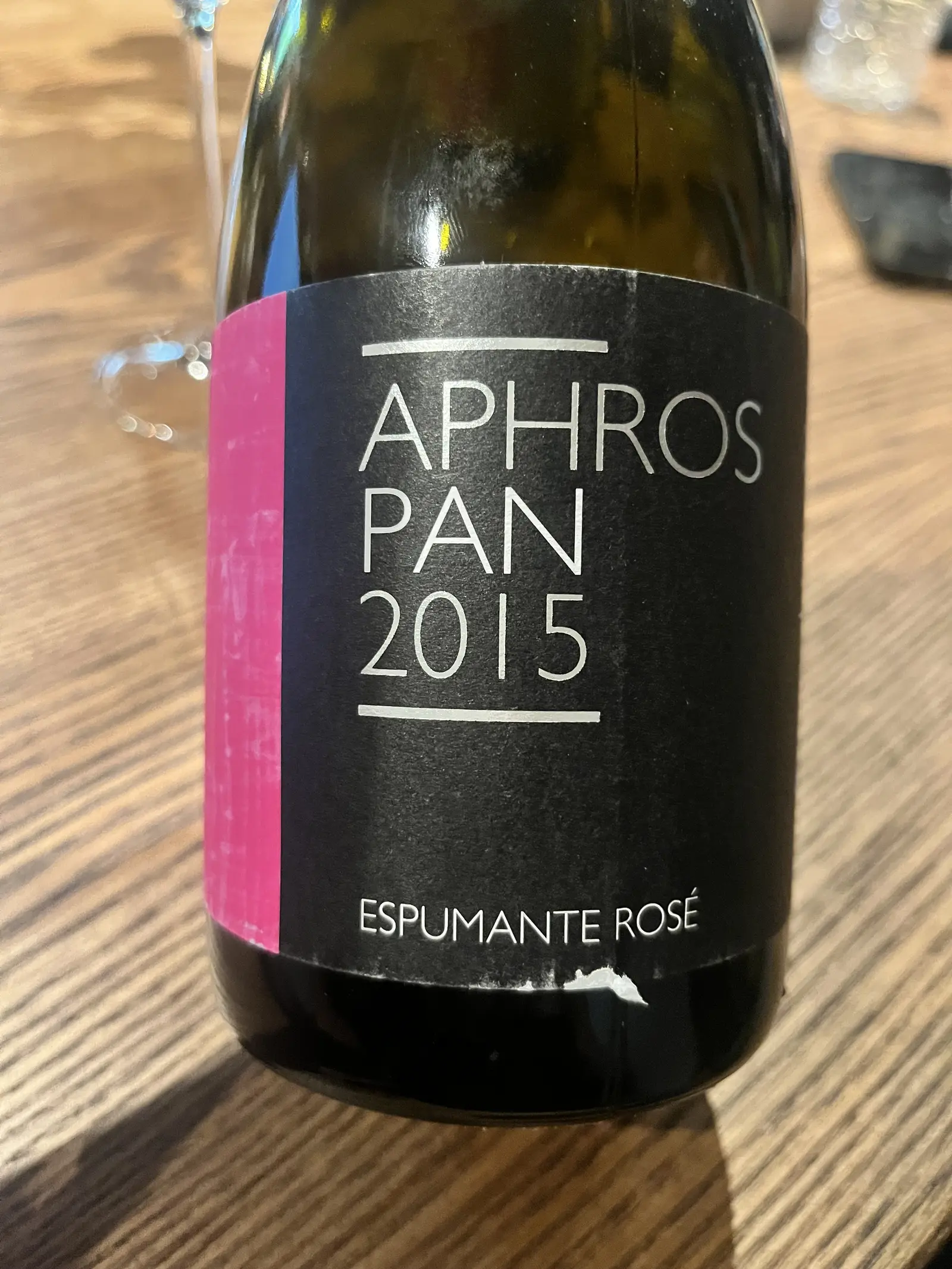Aphros Yakkos 2010
- Region
- Portugal » Vinho
- Type
- red traditional sparkling, brut
- Producer
- Vintage
- 2010
- Disgorged
- N/A
- On lees
- ~67 months
- Grapes
- Vinhão
- Alcohol
- 12
- Volume
- 750 mL
- Cellar
- not available

Ratings
Mineral backbone with sharp bones on full display - dark and red berries throughout. Very thin, punchy. Not easy to drink. Lacks a bit of structure for my taste, but it's undeniably beautiful wine. Just not my cup of tea.
Tasted blind, and it was amusing how I started describing my experience with Yakkos—while being completely convinced it couldn’t be Yakkos. In my memory, it was far harsher, especially on the tannin front. This time, the balance was much better.
Still, its main weakness is simplicity. I appreciate the floral tones and dried cherry, but there’s not much beyond that. What I do enjoy is the clean dryness and bright acidity—it’s lean in a good way. I’m torn: there are things to like here, but overall, it’s not something I’d choose to drink myself.
That said, it’s absolutely mind-blowing in the context of what it is. And perfect for the laughs.
This red sparkling wine is certainly intriguing, albeit a bit challenging to drink. It offers aromas of overripe red fruits without funkiness, complemented by dried fruits, subtle medicinal notes, and a hint of sea breeze. On the palate, it impresses (not necessarily in a good way) with its super fresh character, length, and tannins, though it pairs best with food for full enjoyment. As it sits and the bubbles settle, it becomes more bearable, and also reveals a lovely salinity in the finish. It must be a nice wine for blind tastings from black glasses!
About Producer
Vasco Croft is the mind behind Aphros. As a teenager, he dreamed of becoming an astrologer, but ended up studying architecture instead. That path shifted again when he discovered Rudolf Steiner's ideas - leading him to England, where he explored pedagogy and sculpture, eventually finding a rhythm in woodworking and furniture design.
It held his attention for a while. But in his thirties, he shared a bottle of wine with a Buddhist monk - and something clicked. For Vasco, it wasn't just a drink; it was an encounter with Dionysus. That moment rerouted everything.
In 2003, he returned to Casal do Paço, a semi-abandoned family estate dating back to the 17th century, and started making wine. Aphros was born.
Related Wines







